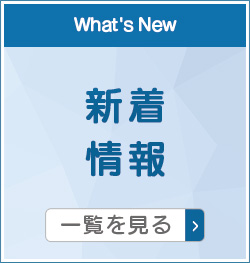9月12日(土)
米国トランプ政権の暴露本として話題沸騰中の米国前大統領補佐官(国家安全保障担当)ボルトン氏の著書『それが起きた部屋:ホワイトハウス回顧録(The Room Where It Happened: A White House Memoir)』は、私たちの知り得ない生の世界情勢を描いています。
この本では、スペイン語圏の中では、ベネズエラが頻繁に登場してきます。巻末のINDEXのVenezuelaの項目の中に、sanctions on, という項目があります。これは、とりもなおさずsanctions on Venezuela (ベネズエラに対する制裁) です。これに関して、何と15カ所の参照頁が記載されています。
本日の記事の前半では、上記の最初の部分を読んでいこうと思います。後半では、スペイン語情報によって別の視点から見てみることにしました。
Ameria's sanctions on Venezuela,2019 をキータイトルとして、これをスペイン語に直訳するとLas sanciones de Ameria a Venezuela,2019 になります。このスペイン語でネット検索すると、スペイン語の関連情報に容易にアクセスできます。
そこで、今回はスペイン語情報と言っても、ベネズエラのジャーナルではなく、あえてフランス24を選びました。
France 24は、フランスの国際ニュース専門チャンネル。この放送局は、CNNやBBCワールドニュース、またアルジャジーラなど国際的なニュース専門チャンネルが影響力を強める中で、「フランス的な価値観を世界に伝える」ためにフランス政府が画策しました。国内のテレビ局であるTF1とフランス・テレビジョンの合弁によって始められ、現在は政府所有の国際放送統括会社フランス・メディア・モンド社傘下です。
Chapter 9 VENEZUELA LIBRE pp248-249
第9章 ベネズエラの自由
There is a two-decade-long history of missed opportunities in Venezuela, given the widespread, strongly held opposition to the Chavez-Maduro regime. Shortly before I became National Security Advisor, while Maduro was speaking at a military awards ceremony on August 4, he was attacked by two drones. While the attack was failed, it showed vigorous dissent within the military. And the hilarious pictures of service members fleeing energetically at the sound of explosions, despite regime propaganda, showing just how “loyal” the military was to Maduro.
チャベス=マドゥーロ政権への強い反対が蔓延していることを考えると、ベネズエラでは20数年に亘って機会を逃してきた歴史がある。私が国家安全保障顧問になる少し前、8月4日にマドゥーロが軍の表彰式で演説をしているときに、2機の無人機に襲われた。攻撃は失敗したが、軍内では活発な反発が見られた。 政権のプロパガンダにもかかわらず、爆発音で我先に逃げまどう軍人の写真のいくつかは、かの軍がいかにマドゥロに「忠実」であったかを示している。
Maduro's autocratic regime was a threat due to its Cuba connection and the openings it afforded Russia, China, and Iran. Moscow's menace was undeniable, both military and financial, having expended substantial resources to buttress Maduro, dominate Venezuela’s oil-and-gas industry, and impose costs on the US. Beijing was not far behind. Trump saw this, telling me after a New Year’s Day 2019 call with Egypt’s President Abdel Fattah al-Sisi that he worried about Russia and China: “I don’t want sitting around watching.” Venezuela hadn’t topped my priorities when I started, but competent national-security management requires flexibility when new threats or opportunities arise. Venezuela was just such a contingency. America had opposed external threats in the Western hemisphere since the Monroe Doctorine, and it was time to resurrect it after the Obama-Kerry efforts to bury it.
マドゥーロの独裁政権は、キューバとの繋がりと、ロシア、中国、イランに開放されたことで脅威となった。モスクワの脅威は軍事的にも財政的にも否定できないものであり、マドゥーロを弱体化させ、ベネズエラの石油・ガス産業を支配し、米国にコストを課すために多額の資源を費やしてきた。北京もそれと遠からずであった。トランプ氏はこれを見て、エジプトのアブデル・ファッタ・アル・シジ大統領との2019年元旦の電話会談後に、ロシアと中国に憂慮していることを私に伝えた。「何もせずに座視していたくはない」と言っていた。私が始めたときにはベネズエラは優先順位のトップではなかったが、有能な国家安全保障管理には、新たな脅威や機会が生じたときの柔軟性が必要だ。ベネズエラはまさにそのような不測の事態であった。アメリカはモンロー・ドクトリン以来、西半球の外部からの脅威に対抗してきたが、オバマとケリーがそれを葬り去ろうとした後、それを復活させる時が来たのである。
Venezuela was a threat on its own account, as demonstrated in a December 22 incident at sea, along the Guyana-Venezuela border. Venezuelan naval units tried to board ExxonMobil exploration ships, under licenses from Guyana in its territorial waters. Chavez and Maduro had run Venezuela's oil-and-gas industry into a ditch, and extensive hydrocarbon resources in Guyana would pose an immediate competitive threat right next door. The incident evaporated as the explosion ships, after refusing the Venezuelan requests to land a chopper on board one of them, headed rapidly back into undeniably Guyanese water.
ベネズエラは、12月22日のガイアナとベネズエラの国境沿いの海上での事件で実証されたように、それ自体が脅威であった。ベネズエラの海軍部隊が、ガイアナの領海内でガイアナからライセンスを受けたエクソンモービルの探査船に乗り込もうとしたのである。チャベスとマドゥーロはベネズエラの石油・ガス産業を分裂に追い込んでいるため、ガイアナの広大な炭化水素資源は、そのすぐ隣にあって彼らに競争上の脅威をもたらすことになるだろう。爆発に巻き込まれた船は、ベネズエラからのヘリコプターの着陸要請を拒否した後、早々と紛れもなくガイアナ海域を目指して戻っていったため、事件は未然に終わった。
Shortly after the drone attack, during an unrelating meeting on August15, Venezuela came up, and Trump said to me emphatically, "Get it done", meaning get rid of the Maduro regime. " This is the fifth time I've asked for it," he continued. I described the thinking we were doing, in a meeting now slimmed down to just Kelly and me, but Trump insisted he wanted military options for Venezuela and then keep it because “it’s really part of the United States.” This presidential interest in discussing military options initially surprised me, but it shouldn’t have; as I learned, Trump had previously advocated it, responding to the press question, almost exactly one year earlier, on August 11,2017, at Bedminster,N.J.:
無人機攻撃の直後、それとは無関係な8月15日の会議中に、ベネズエラ(の話題)が出てきて、トランプ氏は私に向かって、マドゥーロ政権を追い払えという意味で、強調して"Get it done "と言った。「これで5回目だ」と彼は続けた。私たちが考えてきたことを説明したが、今ではケリーと私だけに狭められた会議で、トランプは自分がベネズエラに向けての軍事的オプションを望んでいたし、「それは本当に米国の一部であるので、それを維持する、と主張した。軍事オプションを議論するこの大統領の関心は、最初は私を驚かせたが、そのようなことになるべきではなかった。つまり、私が知ったように、トランプ氏は以前、ほぼ正確に1年前の2017年8月11日、ベッドミンスターN.J.で、記者の質問に答えて、それを提唱していたからだ。
‟We have many options for Venezuela, and by the way, I’m not going to rule out a military option. We have many options for Venezuela. This is our neighbor…this is
we’re all over the world, and we have troops all over the world in places that are very, very far away. Venezuela is not far away, and the people are suffering, and they’re dying. We have many options for Venezuela, including a possible military option, if necessary.”
「我々にはベネズエラに対して多くの選択肢があります。ところで、我々は軍事的な選択肢を排除するつもりはありません。我々にはベネズエラに対して多くの選択肢があるのです。ここは私たちの隣国なんですよ、ここは。...私たちは世界中にいて、世界中のとても遠い場所に軍隊を置いています。ベネズエラはそう遠くないし、人々は苦しんでいるし、死んでいます。我々はベネズエラに対して多くの選択肢を持っています。必要であれば軍事的な選択肢も考慮します。
ARCHIVE
- 2024年4月
- 2024年3月
- 2024年2月
- 2024年1月
- 2023年12月
- 2023年11月
- 2023年9月
- 2023年7月
- 2023年5月
- 2023年4月
- 2023年1月
- 2022年12月
- 2022年11月
- 2022年9月
- 2022年7月
- 2022年6月
- 2022年5月
- 2022年4月
- 2022年3月
- 2022年2月
- 2022年1月
- 2021年12月
- 2021年11月
- 2021年10月
- 2021年9月
- 2021年8月
- 2021年7月
- 2021年6月
- 2021年5月
- 2021年4月
- 2021年3月
- 2021年2月
- 2021年1月
- 2020年12月
- 2020年11月
- 2020年10月
- 2020年9月
- 2020年8月
- 2020年7月
- 2020年6月
- 2020年5月
- 2020年4月
- 2020年3月
- 2020年2月
- 2020年1月
- 2019年12月
- 2019年11月
- 2019年10月
- 2019年9月
- 2019年8月
- 2019年7月
- 2019年6月
- 2019年5月
- 2019年4月
- 2019年3月
- 2019年2月
- 2019年1月
- 2018年12月
- 2018年11月
- 2018年10月
- 2018年9月
- 2018年8月
- 2018年7月
- 2018年6月
- 2018年5月
- 2018年4月
- 2018年3月
- 2018年2月
- 2018年1月
- 2017年12月
- 2017年11月
- 2017年10月
- 2017年9月
- 2017年8月
- 2017年7月
- 2017年6月
- 2017年5月
- 2017年4月
- 2017年3月
- 2017年2月
- 2017年1月
- 2016年12月
- 2016年11月
- 2016年10月
- 2016年9月
- 2016年8月
- 2016年7月
- 2016年6月
- 2016年5月
- 2016年4月
- 2016年3月
- 2016年2月
- 2016年1月
- 2015年12月













